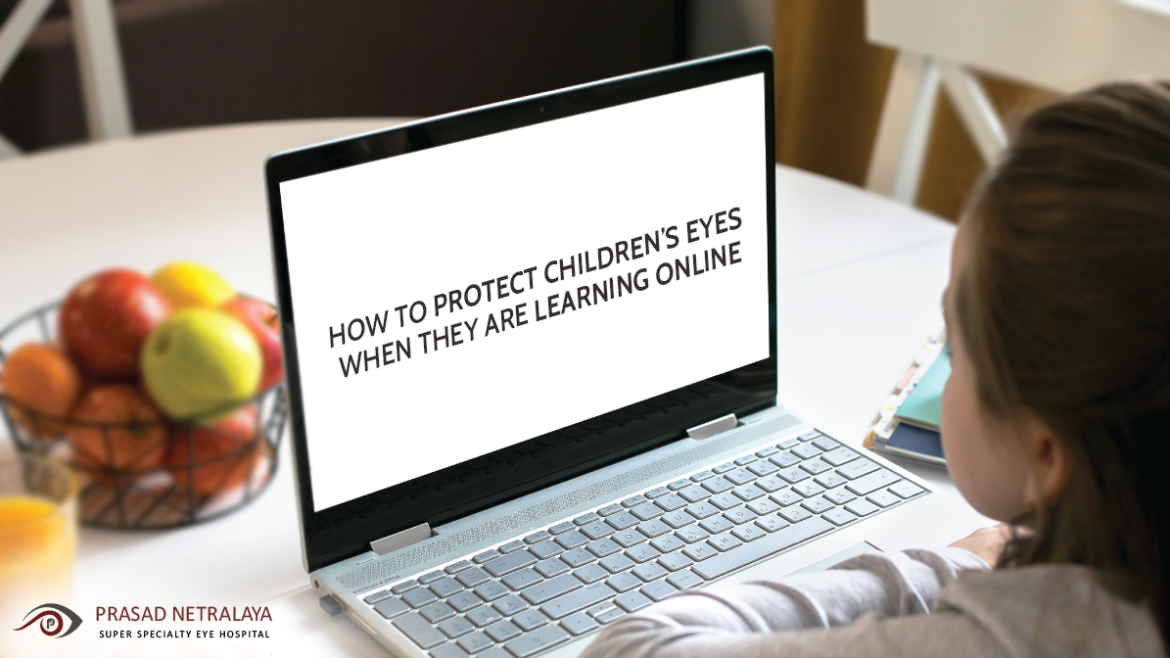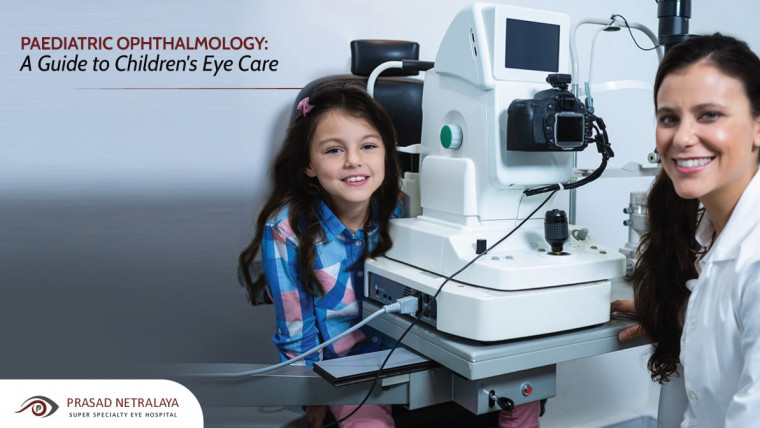COVID-19 has drastically changed all our lives. Everything we thought as normal, is now being redefined. However, thanks to technology, most of us can still continue with our everyday lives without stepping out of our homes. We can shop and pay our bills, get medical consultations, study and even work from home.
With the possibility of learning online, children can continue their education amidst the pandemic right from the comfort and safety of their homes. All it takes is an internet connection and a device like a smartphone, laptop or a tablet for education to go on without any hindrance.
There is however one issue that cannot be overlooked — we are all aware of how staring at a screen can affect the eyes, especially in young children. Prolonged screen time can often result in eye strain, redness of the eyes, dry or itchy eyes, headaches or blurry vision. Noticing and dealing with this early on can save children from a lifetime of eye problems.
In the early months of the pandemic itself, The Economic Times reported a surge in television viewing and smartphone usage driven by kids who did not have to go to school and could not go out to play. Now, with schooling going online, it is more necessary than ever before to take steps to reduce the harm caused by prolonged screen time. With that in mind, here are a few ways in which children can protect their eyes during long hours of online learning:
- Adjust screen and room brightness
While staring at the computer screen for long hours, adjust the screen brightness as needed. To ensure minimum strain on the eyes, reduce screen brightness and turn up the contrast. Along with screen brightness, the room lighting too should be adjusted in such a way that it creates less glare while also making sure that there is no strain on the eyes.
- Maintain good ergonomics
A good posture can go a long way in ensuring your eyes don’t get stressed out while learning online. So follow these basic guidelines — sit with a straight back, adjust the chair so that it is at a 100-110 degrees recline, keep your neck and head in an upright angle, avoid leaning on any side, position your monitor so the first line of text on the screen is on eye level, place your monitor at arm’s length and ensure that the keyboard is close and directly in front of you.
- Do not skip wearing glasses, if prescribed
For those kids who have prescription glasses, make sure to stick to it at all times while looking at the screen. For children who wear contact lenses, know that they are not a better alternative to glasses when it comes to prolonged screen time. Therefore it is best to wear glasses while learning online. Regular use of glasses, when prescribed, will go a long way in protecting your children’s eyes.
- Take breaks regularly
Short breaks at regular intervals have proven to be very effective because they give the eyes a chance to change focus on faraway objects. Always remember the 20-20-20 rule — every 20 minutes, look away from the screen for 20 seconds at an object 20 feet away. This method can be very useful in reducing eye fatigue in children. Additionally, make sure you blink often. The normal blink rate is about 10 to 15 times per minute, but when using a computer, we tend to blink less often. Blinking is like a mini-break for the eyes, allowing them to make minor adjustments and stay relaxed. So blink consciously, completely and often.
- Minimize extra screen time
In today’s world, we depend on screens for almost everything – education, work, entertainment, communication, play, shopping etc. However, during extra long hours of online learning, it is best to make sure that children spend their screen time only on things that are an absolute necessity and give their eyes some rest at other times. So when class is not in session, keep the screen away!
- Maintain a healthy diet
We all know the importance of a balanced diet. However, while online learning poses many risks to children’s eyes, sticking to a diet that is good for the eyes can be extremely beneficial. Stock up on vitamin A, vitamin C, vitamin E, lutein, zeaxanthin and omega fatty acids which are found abundantly in foods like carrots, beetroot, mango, papaya, citrus fruits, amla, green leafy vegetables, almonds, walnuts, eggs and fish.
- Get regular eye check-ups
Regular eye check-ups are a must for growing children. It becomes much more necessary, considering all the risks posed by prolonged screen time. Having a routine comprehensive eye exam can go a long way in protecting your child’s eyes while they continue to learn online in the days to come.
Are you concerned about the condition of your children’s eyes? Do you have more questions about this topic that need to be answered? Prasad Netralaya is here to help you. Our doctors and staff are just a call away, and if you need, you can come to visit us at our hospital where we have taken all the safety measures necessary to keep you and your loved one secure. Reach out to us and book an appointment to speak to our doctors right away!
Dr. Vikram Jain, M.S. had his medical training (MBBS) from Kasturba Medical College, Mangalore, India. He did his master’s in Ophthalmic surgery from Kasturba Medical College, Manipal. He currently manages the Glaucoma department of Prasad Netralaya hospital.



